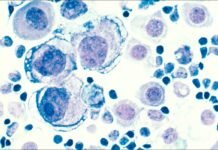
Researchers believe that the underlying cause of many ailments, particularly those related to the immune system and inflammation, could be a disorder referred to as clinical endocannabinoid deficiency.
Endocannabinoid deficiency is a theory for the symptoms and conditions that develop when the body’s endocannabinoid system isn’t functioning properly. We’ve previously discussed the endocannabinoid system and its role in regulating a wide array of body processes to maintain our health. The body naturally produces neuromodulatory lipids called endocannabinoids, which interact cannabinoid receptors throughout the body to elicit chemical responses that keep the body in balance.
The theory of clinical endocannabinoid deficiency suggests that in some cases the body doesn’t produce enough endocannabinoids or enough receptors for the endocannabinoid system to function properly. As a result, the many functions aren’t regulated properly and the body becomes unbalanced, allowing diseases to arise.
Renowned cannabinoid researcher Dr. Ethan Russo first proposed the theory of clinical endocannabinoid deficiency in 2004. In a study, published in Neuro Endocrinology Letters, Russo suggested that deficient cannabinoid levels might explain why some conditions develop.
Russo had examined the available literature and found evidence that people diagnosed with certain conditions had lower levels of endocannabinoids. He suggested that a person being deficient in endocannabinoids and/or cannabinoid receptors could explain why supplementing with cannabinoids found in plants like hemp were proving effective at alleviating some conditions.
“Migraine, fibromyalgia, [irritable bowel syndrome] and related conditions display common clinical, biochemical and pathophysiological patterns that suggests an underlying clinical endocannabinoid deficiency that may be suitably treated with cannabinoid medicines,” Russo concluded in his research review.
Cannabinoids found in plants like hemp, including cannabidiol (CBD), are analogous to the endocannabinoids naturally produced by the body. Research shows that they interact with the cannabinoid receptors of the endocannabinoid system to elicit chemical responses that help bring about homeostasis.
A deficiency in endocannabinoids has been linked to several other disorders besides migraine, fibromyalgia and irritable bowel syndrome. The endocannabinoid system is responsible for regulating the release of neurotransmitter, so diseases that are attributed to their dysfunction, such as Alzheimer’s disease and Parkinson’s disease, may be related to clinical endocannabinoid deficiency.
While more research needs to be done before endocannabinoid deficiency can be proven, the theory could open the door for methods to prevent and manage certain conditions. Russo believes cannabinoids from cannabis plants like hemp are essential nutrients that can minimize certain diseases by assisting the endocannabinoid system and ensuring that it functions properly.



